Choose a report:
➤
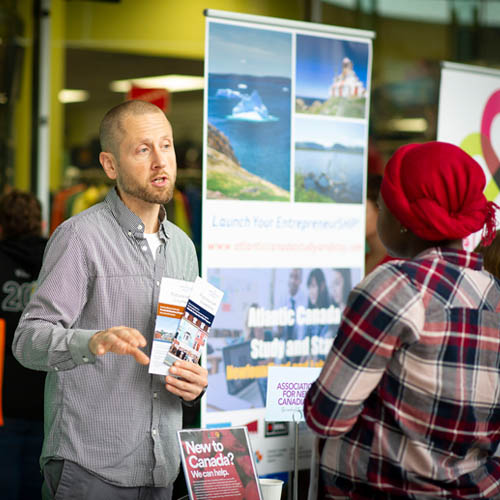
Office of Engagement
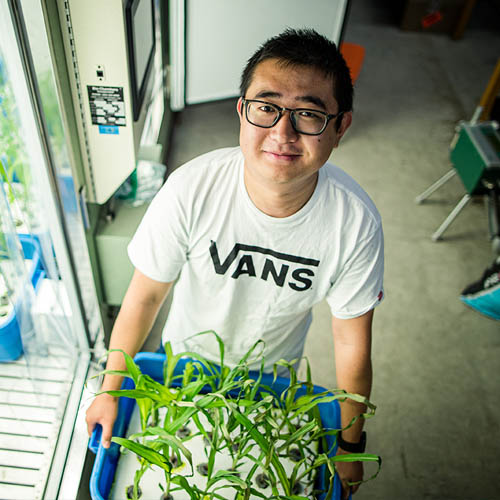
Community Engaged Research
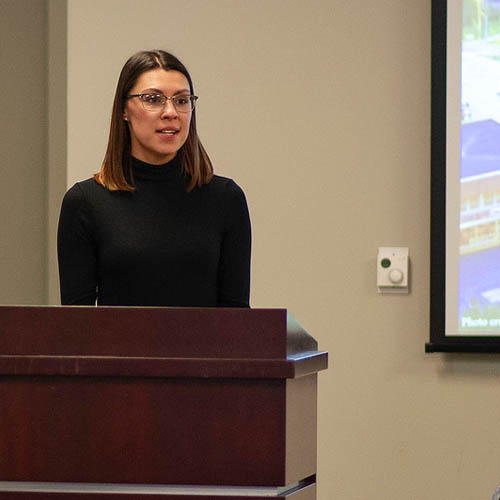
Community Engaged Learning
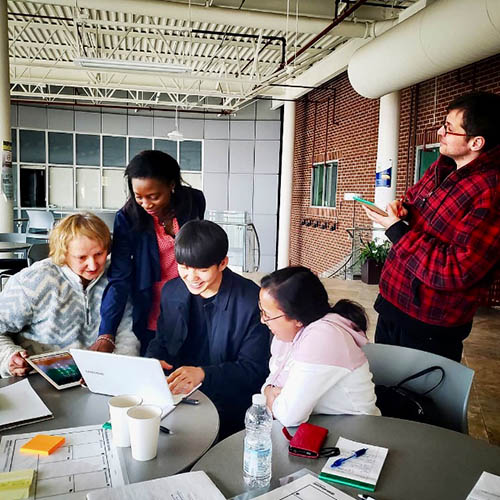
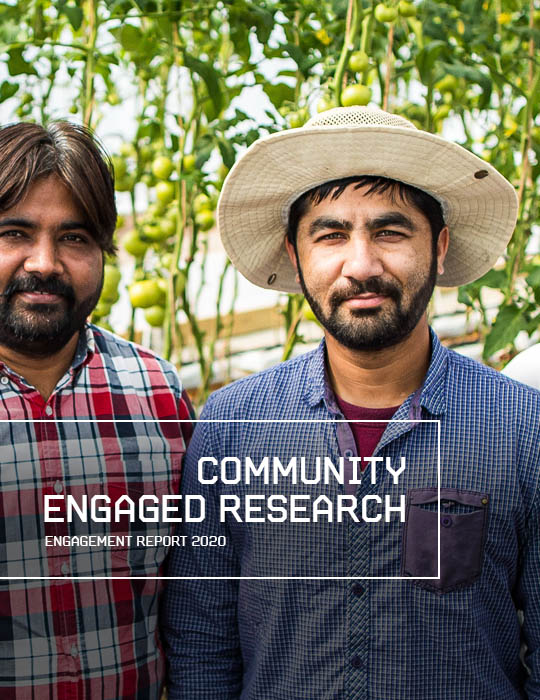

Sexton's Lumber. Photos by Bojan Furst.
For the past year, a team of Grenfell Campus faculty and graduate students have joined with the Newfoundland and Labrador Forest Industry Association (NLFIA) and other key forestry industry partners to play a critical role in exploring future possibilities of a Newfoundland and Labrador forest-based bio-economy. Funded by the Newfoundland Labrador Workforce Innovation Centre (NLWIC), the project entitled "Forest-based Bio-economy Development in Newfoundland" looks for ways to innovate the sector's workforce and products.
What is a "bio-economy?" This emerging concept examines how our industries, such as sawmills and other forest-based operations, can use biological resources to provide products, processes, and services within the frame of a sustainable economic system.
"This idea is of utmost relevance in the province of Newfoundland and Labrador," said Dr. Mery Perez, coordinator of the new Centre for Research and Innovation. "In our province we have a well-established tradition of forestry producing by-products that could be further explored in a way that reduces and redirects waste streams. Our forest industry continually seeks for ways to innovate and increase skilled jobs in the sector."
The project is led by Dr. Stephen Decker and brings together a team of researchers and experts from the industry. It also taps into the expertise of each of the partners as well as that of the Harris Centre and Grenfell's Office of Engagement. Additionally, NLWIC provides project management capacity to move the project forward in a way that remains embedded in the context of Newfoundland and Labrador.
The researchers involved are looking at five case studies across the island, looking for ways in which this industry can innovate when it comes to products and labour force.
"In each of these regions we are initially meeting with sawmill owners and managers to learn of the challenges, opportunities, assets, and aspirations of their enterprises," said Dr. Decker. "We are then connecting with a broader spectrum of regional stakeholders to facilitate discussions around new opportunities for forest-based products, workforce diversification, and partnerships to support the development of new ventures."
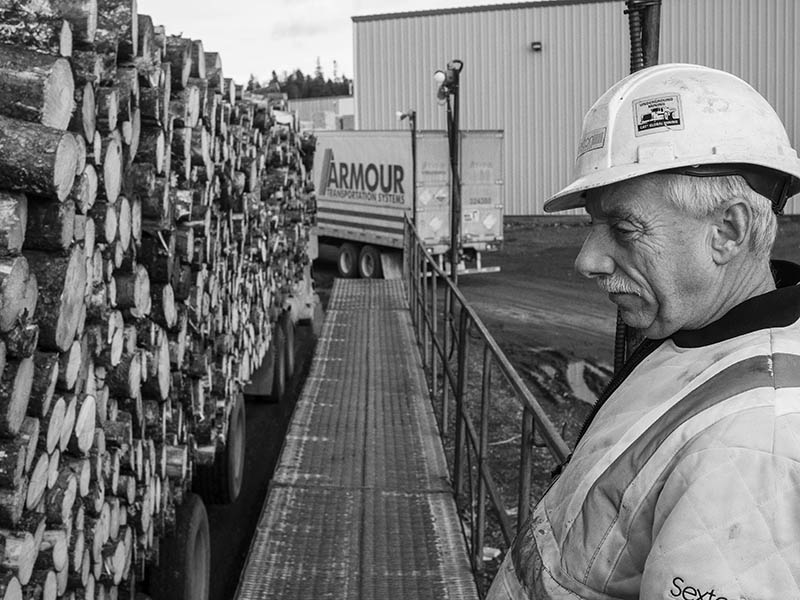
Sexton's Lumber and owner Kevin Sexton. Photo by Bojan Furst.
One of the case studies focuses on Sexton Lumber, owned by Susan and Kevin Sexton in the Bonavista region.
"We've got a big wide door, and it's always open," said Mr. Sexton in an interview with the Harris Centre's Bojan Furst. "We're always looking to come up with some new ideas. If there anybody out there who has an idea, by all means, let's look at it."
Currently the sawmill aims to use every scrap that comes from the sawmilling operation, producing everything from resins and sawdust to sawlogs and pulpwood. But Mr. Sexton knows there is waste from his mill that could be put to good use.
"We have a lot of excess steam that's just going into the atmosphere that absolutely could be used to heat a building or a greenhouse," he said. "Five years from now I would like to see onsite here something that would be using 100 per cent of anything that we would produce, from all our residues right to the steam exiting from our boilers. Why burn fuel when we have energy here? And we can produce more energy."
Using "Bang the Table" a cutting edge, interactive platform, the project team is engaging with community partners in the region to first identify the region's and the mill's unique assets. Once those are identified, team members from the Harris Centre will facilitate collaborative sessions exploring the potential for innovation.
Lucas Garcia and Willy Benson Ghihangange, students in Grenfell's newly launched PhD in Transdisciplinary Sustainability program are right at the centre of this team, which encompasses researchers and community partners from the Newfoundland and Labrador Forestry Industry Association (NLFIA), Qalipu First Nation, Women in Resource Development Corporation, Newfoundland and Labrador Environmental Industry Association, College of the North Atlantic, among others.
"Our work includes research into the assets that are present in each region, as well as their hopes for the future," said Mr. Garcia. "Through this project, we hope to make a concrete contribution to the future of the province through helping to reduce greenhouse emissions, improving management of natural resources, and strengthen employment and market systems."
Most recently, researchers presented at a forestry knowledge-sharing event, organized by the Canadian Forest Service and Grenfell Campus, Memorial University.
"Innovation and research are crucial to modernizing the forestry sector and responding to the pressing climate change and sustainable forest management challenges of today," said Karishma Boroowa, director, Atlantic Forestry Centre. "For these reasons, knowledge sharing events such as these are important for collective learning and identifying opportunities to advance the development of our sector."
A presentation by Bill Dawson, NLFIA, and Dr. Decker focused on the opportunities and challenges they've met with respect to their work with forest-based bio-economy development on the island. The event can be viewed on Grenfell Campus's Facebook page.